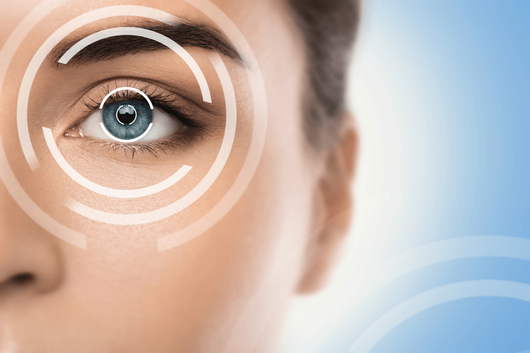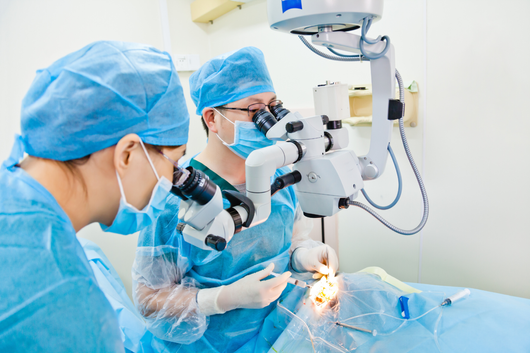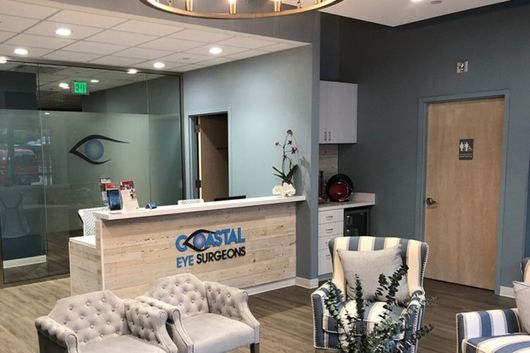
Life wouldn’t be the same if it weren’t for the wonderful work that our eyes are responsible for on a daily basis. They’re the reason we have this amazing thing called vision and it’s something that allows us to lead a healthy, happy, fulfilling, and rewarding life every single day we wake up.
As wonderful as our eyes are, they are far from perfect. Millions upon millions of people around the world will be diagnosed with eye conditions that either impede their ability to see clearly or result in vision loss to some degree. Luckily, most of these people have treatments to rely on.
One of the most common eye conditions, especially among the elderly, are cataracts. Believe it or not, nearly half of all Americans either have cataracts or have had cataract surgery by the time they turn 80 years old. In fact, over 3.5 million cataract surgeries are performed each year.
So, What Is A Cataract?
A cataract is characterized by cloudiness of the natural lens, which is responsible for focusing light into the retina (found in the back of the eye). Patients that experience a cataract can relate it to looking out a fogged-up window or piece of glass, which isn’t helpful to our vision or eyesight.
Cataracts that are detected and diagnosed in the early stages won’t always require surgery. With that said, surgery is recommended if it starts to impede on your ability to live a quality life. This happens when the blurred or cloudy vision makes it difficult to see clearly on a daily basis.
Surgery for Cataracts involves removing the cloudy natural lens and replacing it with an artificial lens, also known as an intraocular lens (IOL). Don’t worry, cataract surgery is very well-tolerated in most patients and is highly successful when administered by a talented and experienced surgeon.
Preparing for Cataract Removal Surgery
Much like any other surgery, most patients are going to be a little nervous and worried leading up to the day of the surgery. While this is normal, it’s important to know that cataract surgery is often painless and comes with an extremely high success rate -- there’s not much to fear at all.
Your eye doctor will likely give you specific directions on how to prepare for cataract removal surgery based on your current eye health and medical history. These directions can include not wearing contact lenses, taking certain supplements, or utilizing artificial tears (eye drops) daily.
You should also be prepared to have someone drive you to the surgeon’s office on the day of surgery, especially since you won’t be allowed to drive following surgery. The good news is it’s an outpatient surgery, meaning you’ll be able to go home and won’t spend the day in a hospital.
What to Expect the Day of Your Cataract Surgery
You should have a lot of positive emotions running through your mind on the day of your surgery. Not only is it a well-tolerated surgery with high success rates, but it’s the start of a new beginning with your vision and will be the start of the end for your blurred or cloudy vision.
You’ll be asked to arrive at the surgeon’s office around 30 minutes before your surgery to ensure enough time to fill out paperwork and prepare. It’ll often start with a quick examination by the nurse. You’ll also be given eye drops to dilate the eye and/or prevent inflammation or infection.
While you won’t be given general anesthesia (meaning you’ll be awake during the surgery), you will be given local anesthesia to numb the surrounding area. You’ll generally wait for around 30 minutes while the anesthesia settles in before the eye surgeon makes their way over to you.
What Happens During Cataract Surgery?
Cataract surgery normally takes anywhere from 15 minutes to 45 minutes once the eye surgeon begins working on the affected eye. Keep in mind that only one eye can go through surgery at a time. If you have cataracts in both eyes, you’ll need two separate appointments.
To keep the area clean, your shoulders and face are covered in drapes. Your eye doctor will use a special microscope to get a closer look at the eye while they work. The surgeon will make an incision in the eye, which is where the natural lens will be removed and artificial lens be placed.
There are two major methods of making this happen. The first procedure is phacoemulsification, which involves the use of a device that sends ultrasound waves to break up the cloudy lens. Once broken up, the lens is suctioned out of the eye and replaced with the intraocular lens.
The other procedure is called extracapsular surgery. It’s more rare than phacoemulsification and involves a larger incision that allows the doctor to remove the lens as a whole. Although the other procedure doesn’t always require stitches, extracapsular surgery does (bigger incision).
What Should You Do Following Surgery?
Once the surgery is complete, your ophthalmologist will cover your eye with an eye shield and you’ll be directed to a surgery recovery room until the anesthesia and other drugs wear off. Most patients won’t experience any pain during or after the surgery, but there is a recovery period.
During the recovery period, which takes anywhere from a few days to a few weeks, you’ll be asked to avoid driving, avoid touching or rubbing your eye, and avoid several of your normal activities until your eye has healed. You’ll need to follow your surgeon’s specific directions.
You’ll also be given eye drops and pain-relief medication to prevent and reduce any risk of complications following surgery. You should contact your doctor immediately if you experience severe pain, vision acuity issues, blurred vision, or selling/redness of the eye after surgery.
Putting Your Trust In an Experienced Eye Surgeon
If you’re looking for a trusted and experienced eye surgeon to safely remove your cataract(s), you’ve come to the right place. At Coastal Eye Surgeons, we have a strong passion for helping individuals like yourself find peace and serenity with any vision problems -- especially cataracts.
Schedule your consultation today!
Don’t hesitate to give us a call if you’re experiencing any issues with your vision. A regular eye exam can go a long way in detecting and diagnosing a problem in its early stages. The sooner it’s detected, the sooner you can receive the right treatment and return to a normal, healthy life. Learn more about Coastal Eye Surgeon's service for laser surgery for cataracts.
Check out our article on Should You Be Worried About Dry Eyes?







